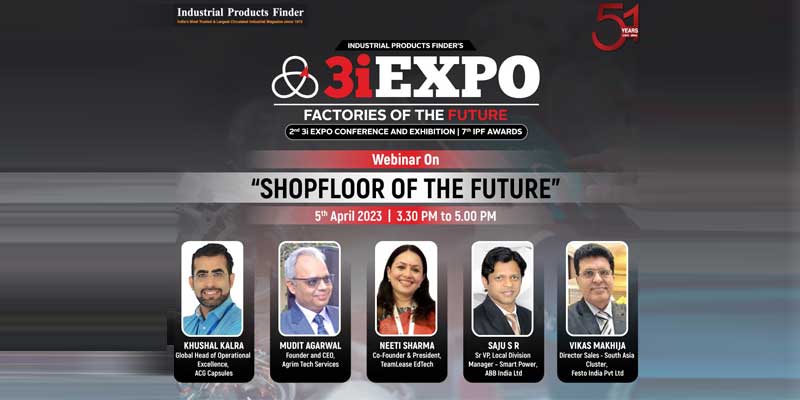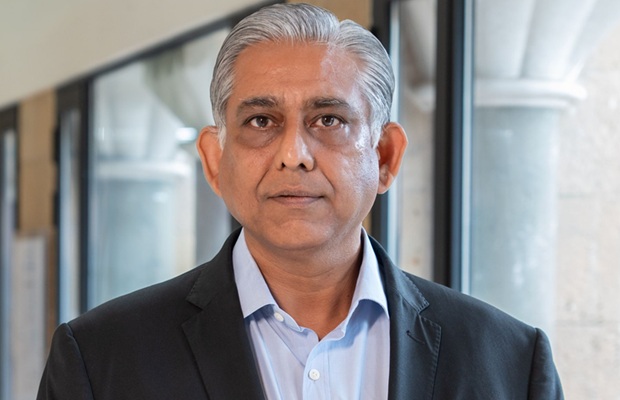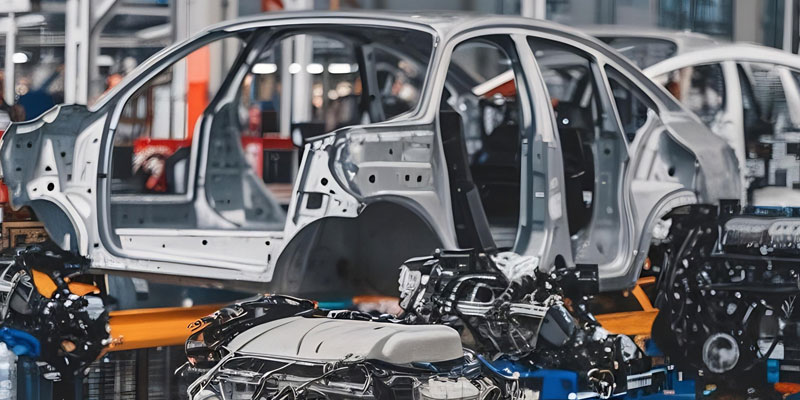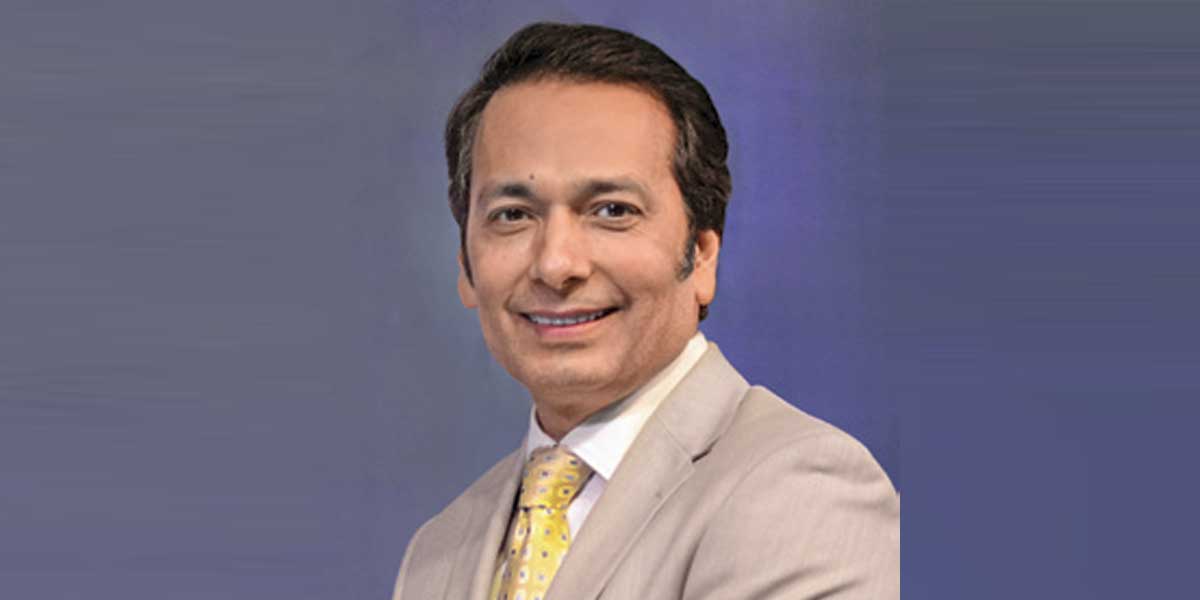Schedule a Call Back
IPF’s 3i EXPO webinar discusses shop floors of the future
 Articles
Articles- Apr 25,23

At the end of the financial year 2022-23, the Minister of Commerce and Industry, Government of India, Piyush Goyal launched the much-awaited new Foreign Trade Policy (FTA). The policy release on March 31, 2023, aims to increase India’s exports to $ 2 trillion by 2030 which accounts for about 20 per cent of the GDP by then. To achieve this ambitious goal the manufacturing activity needs to grow manifolds. Hence, the factory shop floor cannot be the same as before.
Factories will have to deploy modern manufacturing technologies to make the entire production process more efficient, productive, and cost-effective while improving product quality and flexibility. India will also have to build a skilled manpower pool capable of servicing a $5 trillion economy before 2030. At the same time, India will have to achieve the manufacturing milestones by meeting the sustainability goal targets.
Industrial Product Finder (IPF) magazine conducted a panel discussion – “Shopfloor of the Future” - considering the need to discuss the strategies and processes required to build factories that can meet the present requirements as well as make factories future ready. This virtual panel discussion is the third in the series of webinars that will be hosted by Industrial Products Finder as a part of 3i EXPO 2023, which will be organised by IPF on June 22-23, 2023 at Nehru Centre, Mumbai. The 2nd Edition of IPF’s 3i EXPO 2023 – with the theme of “Factories on the Future” – aims to bring all the stakeholders who are involved in increasing the “Productivity” and “Green Quotient” of factories on one platform.
In this panel discussion, eminent personalities such as Khushal Kalra, Global Head of Operational Excellence at ACG Capsules; Mudit Agarwal, Founder and CEO of Agrim Tech Services; Neeti Sharma, Co-Founder & President of TeamLease EdTech; Saju SR, Sr Vice President and Manufacturing Head of Smart Power Division of Electrification Business in ABB India; and Vikas Makhija, Director Sales – South Asia Cluster at Festo India were involved. The session was moderated by Rakesh Rao, Executive Editor, IPF. Business professionals, SME traders, and manufacturers from many industries were among the audience members and received valuable insights from the discussion.
Changing manufacturing spaces
Analysing the present status of manufacturing, Khushal Kalra started the discussion, “Initially, manufacturing in India started with the basics of process oriented or product oriented layout, built in around to deliver the volumes asked from the customers. Taking insights from Japanese and European markets, we have moved on from a primary process and delivery-oriented layout to an integrated value exchange concept. From ‘cost’ point of view to ‘quality’ point of view, there has been a shift in deliveries to customers.”With these changes in the manufacturing industry, the factory shopfloor has also changed. Comparing the shopfloor from decades ago, Saju SR said, “The manufacturing industry is becoming glamorous now. Coming out of the cliché that manufacturing units are dirty and, unsafe places, the factories are becoming cleaner, safer and more efficient now. We are also moving to the Japanese ‘5 S model’ but taking it further with the 6th ‘S’ which is ‘safety’.
Digitalisation is an accelerating factor in that. For example, in my factory, the ‘Man to Robot ratio’ is 1:7. We are looking at flexible production facilities. And the data quality is also getting better because of Artificial Intelligence (AI), Internet of Things (IoT) and Industry 4.0.”
Vikas Makhija added to this, “Data tracking is an important aspect which is coming for the machine parameters. There are many semi-automated and automated manufacturing lines.
These units can be converted into digital components by adding some special features. For example, say by adding some sensors to a semi-automated machine, it can be converted into a digital innovation. So, with proper analysis and tracking appropriate data innovations it can be simply done by not putting in huge investments and efforts in some cases.”
Taking of the factors triggering the changes in the shopfloor, Mudit Agarwal said, “Today, every sector of the market is equally aware of the fundamental changes which are taking place. MSMEs are also aware of digital innovations, and likewise large industries and OEMs.
This has triggered the competition lot. So, the first factor to mention is competition which is setting off the changes in the shopfloor. The other factors are technology, environmental factors like sustainability goals, regulatory factors etc. The changes in the shopfloor are also affecting the way of operations of the shopfloor.”
The on-ground changes sometimes demand some structural changes in the organisations. One such change is the human resource (HR) space which has also leapt in past years. Neeti Sharma told about that, “If the shopfloor is changing then the human resource has to change. Over the last two decades, HR has transformed from being a compliant-oriented function to a more evolved talent management function for organisations. Modern-day HR is a strategic partner to the industries and the business at large. They are now called HRBPs (Human Resource Business Partners) where they understand the business dynamics, and macro and micro environmental influences and then decide the bringing in people, retaining them and making them more productive. To build a high-performing culture, HR is also driving flexibility across organisations.”
Technological Investments
Speaking of the technological advancements and investments of the companies in India on it, Kalra said “Technology plays an important role in the shopfloor developments which are happening. Over the years, industries across the segments like manufacturing, pharma etc have invested in automated technologies. And now digital is catalysing the shift from automated processes to autonomous processes. India’s investment in technology is more than 30 per cent. Currently, the focus is on OEMs and B2C markets. The MSME sector is an important part of the manufacturing industry but is still struggling with technological advancements due to a lack of resources. In future, there will be a harder push in that as well. ”Vikas Makhija added, “People used automation as per their requirement which at the same time provided them Return on Investments (ROI). In India, Manufacturing output is increasing with time. And to mention, the MSME has equal manufacturing outputs as the large enterprise. But they are facing constraints which might be from the finance aspect, or not having enough marketing bandwidth because of which MSMEs are limiting their way towards automation. The companies have now learned the concept ‘we have one Earth to live on’, and sustainability is everyone’s focus now. Investors are also looking to invest in sustainable businesses. We have to look at how we can enhance the contribution of manufacturing to the GDP of India.”
“As I mentioned that MSMEs are equally aware of the changes in the market, it now has a level playing field. This is a good thing and a bad thing at the same time. The consumer set is still the same for both MSME and large corporate. And now the MSMEs’ aspirations are not limited but their struggles stay within the lack of the right kind of advice,” said Mudit Agarwal.
The panellists were asked to give some advice to the audience on how companies can make their shopfloors future-ready. To this the panellist Kalra added, “Upskilling is very important. Work on your manpower and make them ready to use the new and upcoming technology.
Adding to that I would also suggest investing in appropriate technologies as required.” Agarwal advised, “The organisations are going to take a cultural shift, be in terms of training, creating awareness and working operations. So, be prepared for that. Also, be ready for setbacks and failures as well. Because while growing you might face that, but to overcome from that and move ahead is important.”
“Adopting and enabling employees to co-exist with technology, machines, products and processes by upskilling, and handholding their workforce,” was the advice Sharma gave to the manufacturing industries to be shopfloors future-ready. Whereas Saju suggested, “Work on the basics first. Get them right otherwise there is no point in working on digitalisation. Secondly, have a proper vision for the coming years. Because sometimes companies invest in technologies and further after a few years they don’t find it useful because of changes in their vision. ”
“Remember the best of technologies are available to everyone now. And the government of India is very supportive towards manufacturing industries today by providing schemes like PLI (Production Linked Incentives). So, it’s up to you how you can utilise these opportunities altogether to benefit not only your company but the nation at all,” said Makhija to conclude.
(This is a report filed by Ayushi Khandelwal)
Related Stories

Engineering India’s Next Phase of Growth with Responsibility: Amit Sharma
Amit Sharma, MD and CEO, Tata Consulting Engineers (TCE), outlines TCE's strategy to support India’s next phase of industrial growth through integrated engineering, nuclear and digital capabilitie..
Read more
EV transition and tariff wars redefine India’s auto components play
India’s auto component industry is poised to hit $ 145 billion by FY30 from $ 80 billion in FY25. Yet high US tariff, EV transition and heavy reliance on imports from China expose vulnerabilities,..
Read more
HANNOVER MESSE to Host Industry Leaders on Future Tech 2025
At HANNOVER MESSE, global leaders from Siemens, Rheinmetall, Accenture and others will share insights on AI, automation, security and industrial transformation shaping the future of industry. update..
Read more












